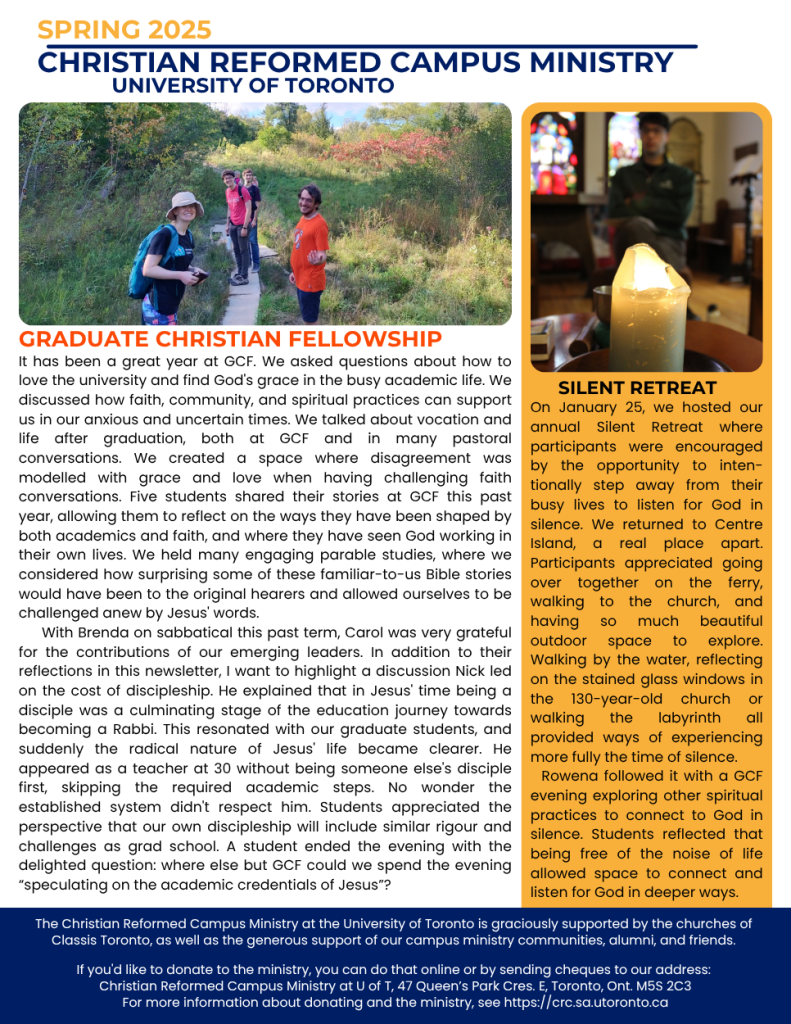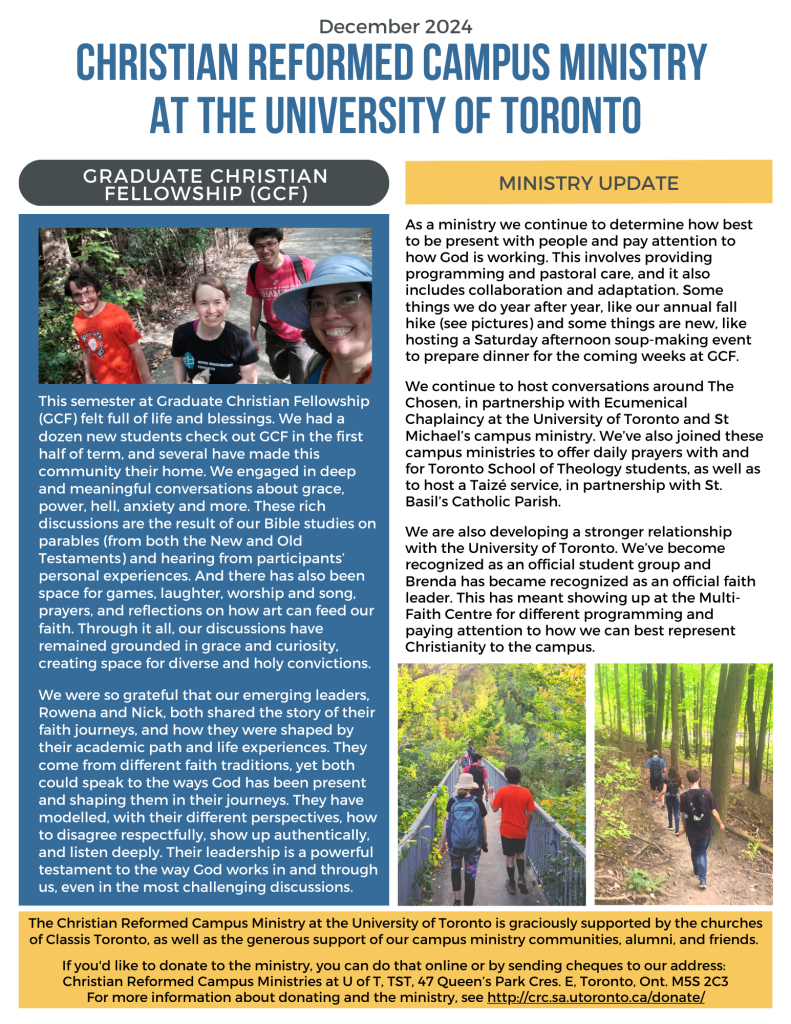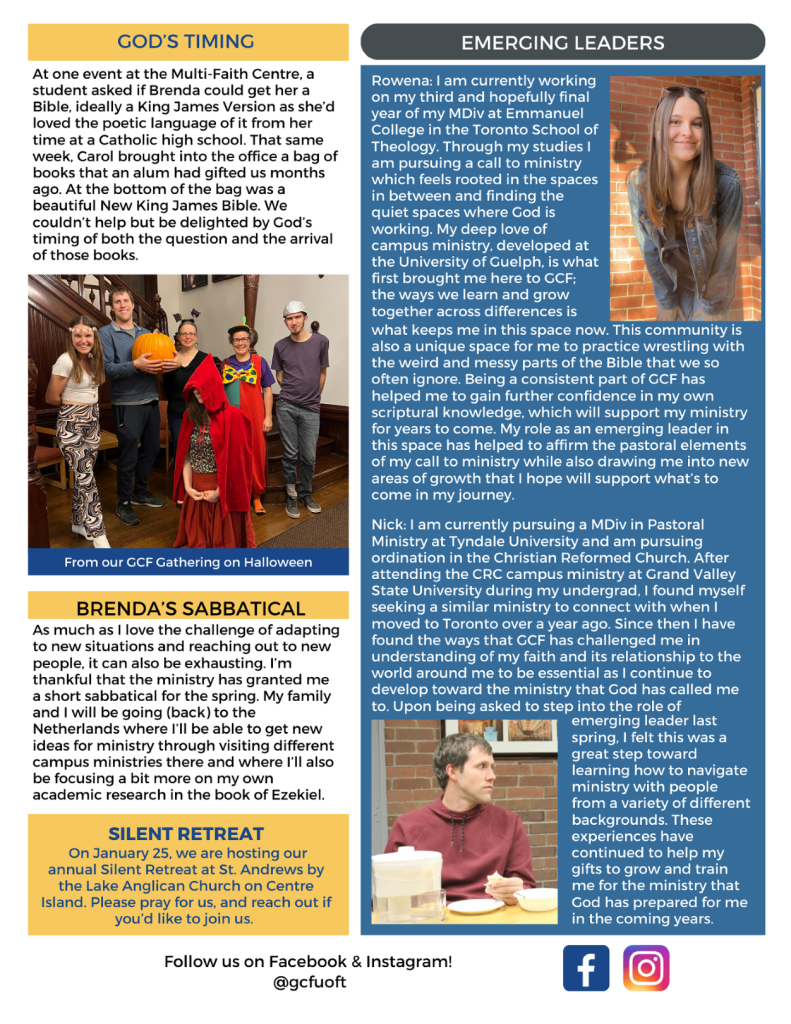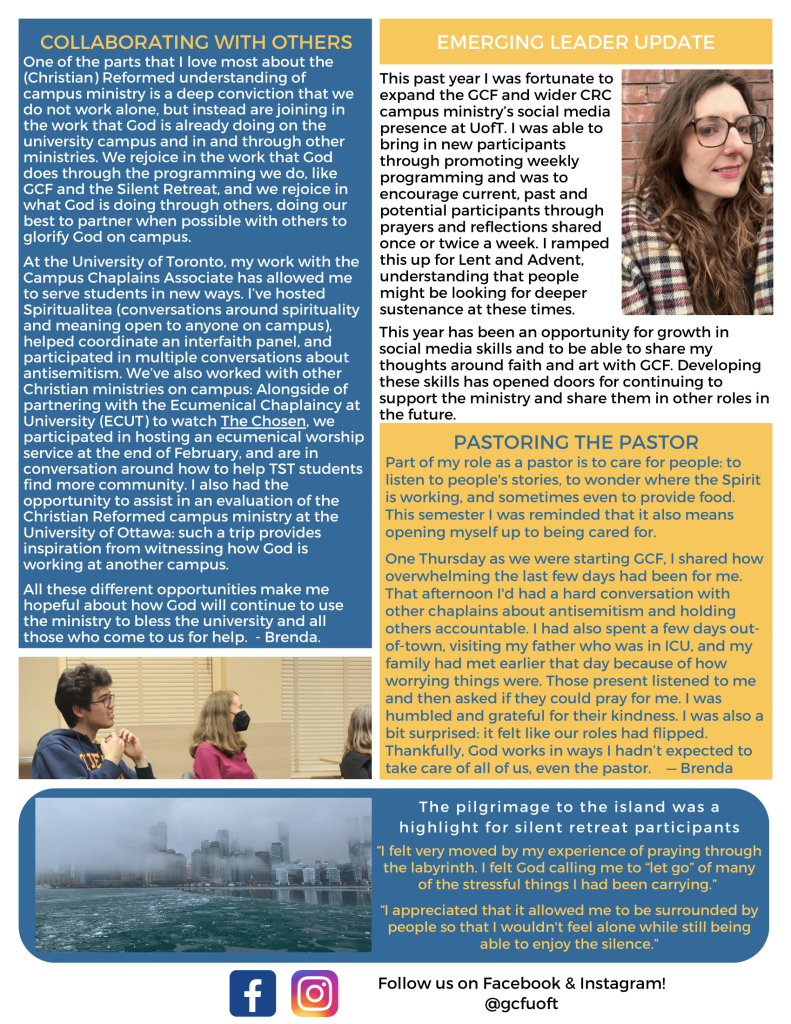
Advent Resources for 2025.

Taizé Meditations, Prayers, and Blessings
A collection of songs and prayers in the Taizé style for contemplation throughout Advent.
We have a Taizé service on November 28.

A daily, contemplative devotional, rooted in ancient traditions of Divine Office and lectio devina, with daily posts to their webiste.

Weekly Zoom course with Brian J. Walsh
Taught by former GCF chaplain Brian J.Walsh, this weekly course will have teachings about Advent, lament, and song, with opportunities to ask questions in the chat.

The Coming Light: Daily Devotionals
Delivered every day to your inbox, the Advent Reader considers the Hopeful Presence of Jesus in Advent.

This year Kate Bowler is providing these free daily devotionals through her Substack. Register at katebowler.com

Trans Advent: Resource from Unbound
Free daily devotionals written and inspired by trans people of faith, from Unbound:Intersections of Faith and Justice.

Free and paid resources about celebrating Advent and Christmas humbly, beautifully, and generously.

Jan Richardson: Poetry and Blessings
One of Carol’s favourites, Jan Richardson has several books of poetry and blessings for the liturgical year, including Advent and Christmas. See some of her blessings on the GCF Instagram feed every week.

Inspired by the True Gifts of Christmas by Megan Alexander, these free devotionals from Layola press come to your inbox daily.



















